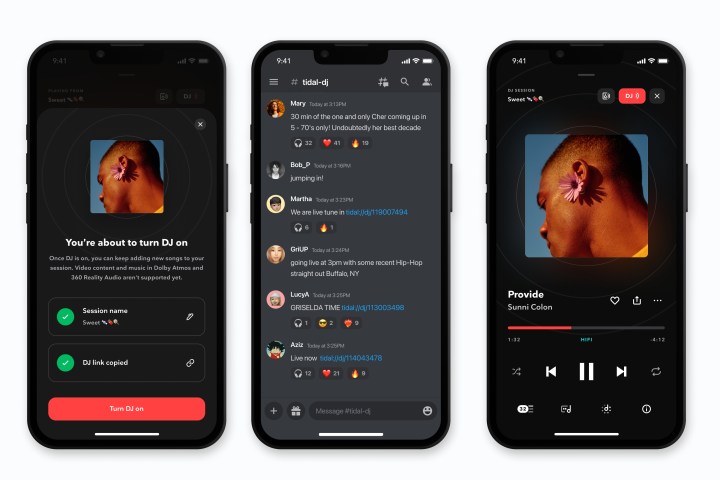Tidal, the high-resolution music streaming service, announced today that it’s inviting members of its Early Access beta testing program to try out a new feature, dubbed “DJ”, that will allow them to share playlists, albums, and tracks with other Tidal members, live, at the same time, no matter where they are.

While limited details of the DJ feature are available, a press release from Tidal says that U.S. subscribers to its HiFi Plus plan that are also enrolled in the Early Access Program can gain access to a beta build of the Tidal app that includes the new capability. These users can then create and name playlists (using text and emojis) for a “session” — be it for a road trip, workout, or party warm-up — to be shared with other Tidal users to listen in, live. Full albums and songs can also be shared, and it appears that listening to the DJ session is open to all Tidal members through the iOS and Android apps, while creating the sessions is currently limited to those on the HiFi Plus tier with the beta app, which is for iOS only at the moment.
DJs can create sessions from Tidal’s 90 million-song catalog and then create a link to share it however they see fit — social channels, chat, or text. According to the press release, “Tracks will play in normal AAC quality until high-resolution or lossless quality becomes available at a later date,” but it’s unclear if that means that the lower AAC audio quality is just for the beta testing duration or if any of Tidal’s better quality audio formats will be made available to the DJ feature in the future. Update: Tidal has clarified that the DJ will hear the quality they selected and listeners will just hear the normal sound quality (assuming this means AAC). The music playing doesn’t get interrupted.
To try out the DJ feature, you must be a subscriber to Tidal’s $20 per month HiFi Plus plan (which gives you lossless High Fidelity and Master Quality Authenticated (MQA) formats) and sign up for Tidal’s Early Access Program that gives users the opportunity to download and test early builds and features of the Tidal app.



